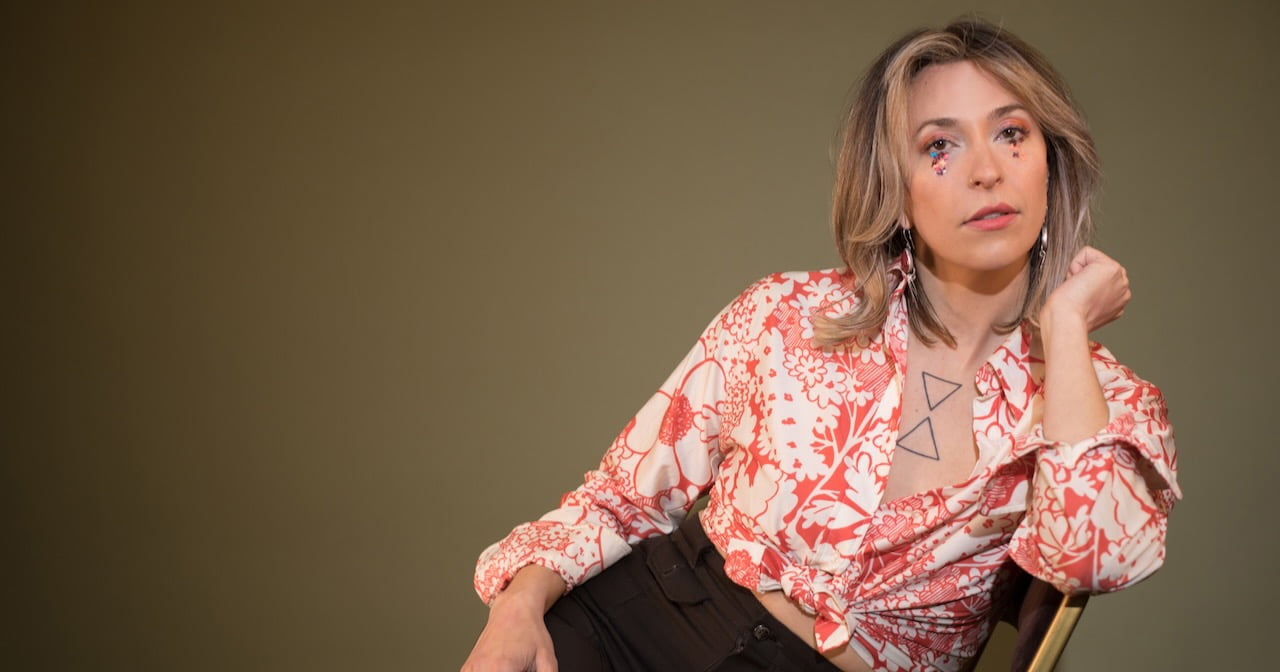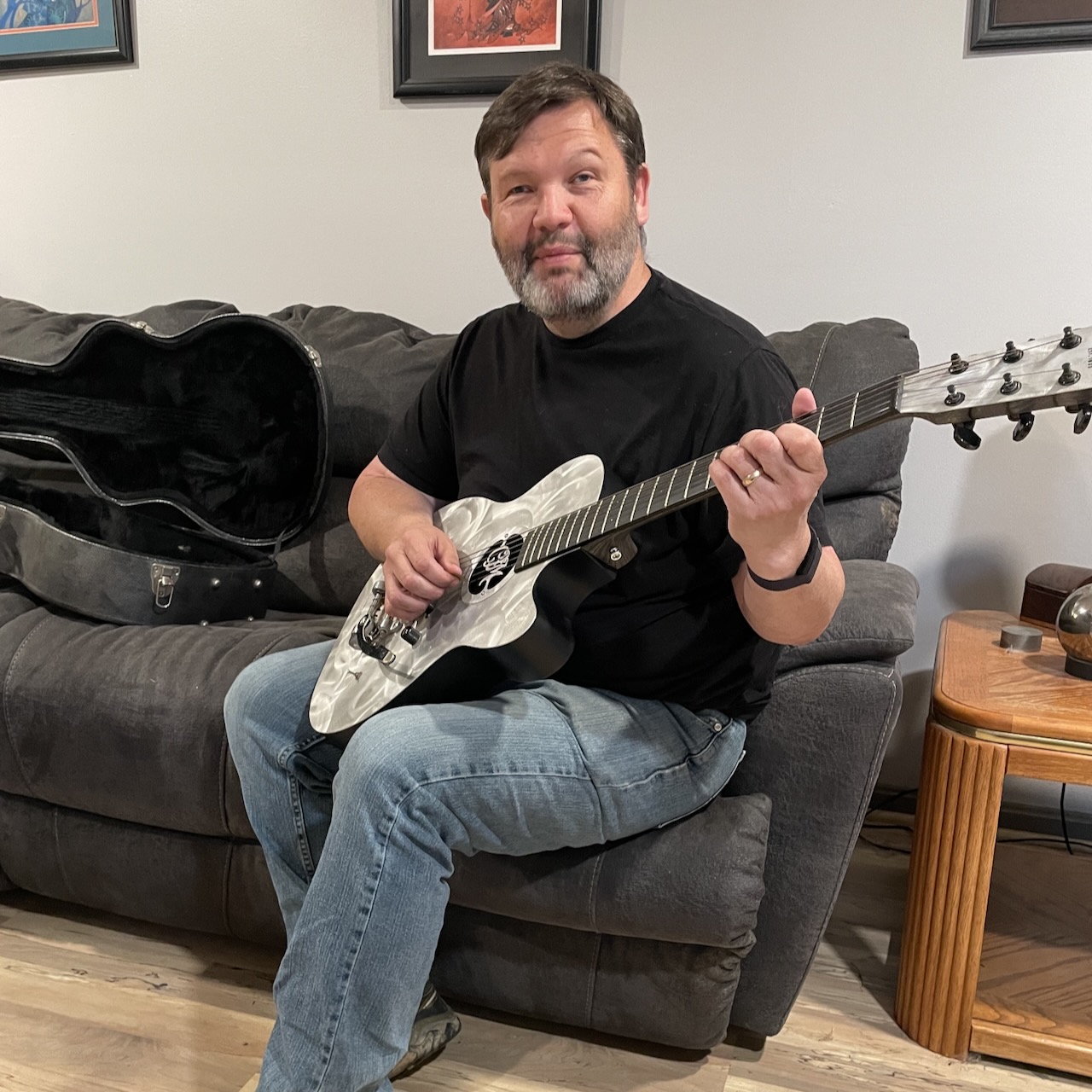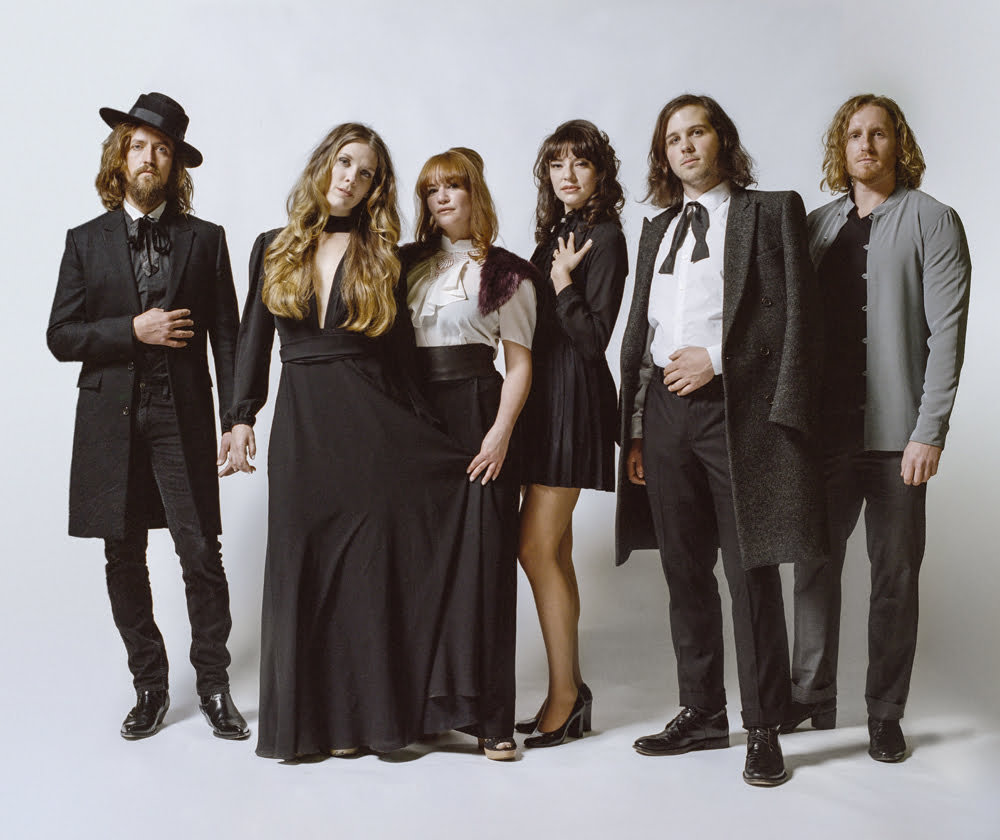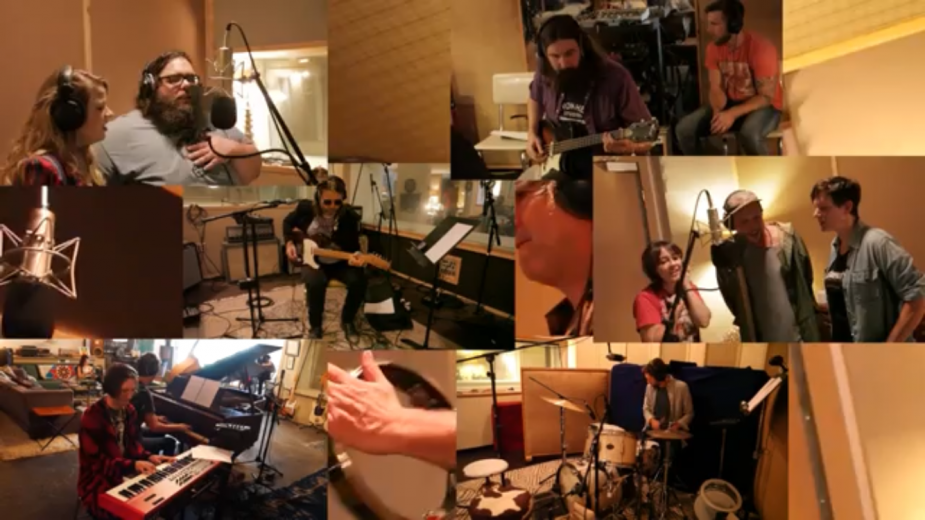With the September release of her album Queen of Time, Nashville artist Lindsay Lou takes listeners beyond a creative journey – it’s more like a long, strange, and satisfying trip, where her “radical truth” conquers all.
A former bluegrass songsmith with roots in groups like her former backing band, the Flatbellys, and Sweet Water Warblers, Lou’s Queen of Time marks the start of another new solo chapter and follows a rough time in her life filled with earthquakes of change. She both lost a grandmother who was pivotal to her development and experienced the end of a marriage – all while her career picked up steam. But, through those endings came a new beginning. One where she better understood her place in the universe, both spiritually and musically.
On Queen of Time, Lou welcomes herself to that new identity (and all who care to follow), doing so with a fresh sound and some old friends. Featuring Billy Strings and Jerry Douglas, 11 thought-provoking tracks infuse her bluegrass roots with atmospheric folk, back-porch psychedelia, and more, as lyrics and voice weave together into something like a sonic dreamcatcher – snatching ethereal truths from the cosmos and translating them in ways the mind can just begin to process.
Recently, Lou spoke with BGS about this heady transformation, working with her friends, and how her “teacher-turned-Rainbow-Gathering-healer” of a grandma helped shape her radical spirituality.
BGS: Tell me how you’re feeling about music making these days? I know this album comes after a lot of change in your life, personally and professionally. Has the way you feel about making music changed, too?
Lindsay Lou: It felt like the most freeing recording endeavor that I have ever set out on. Working with [producer] Dave O’Donnell was really great. He held a ton of space for me creatively and emotionally and just in all the ways. So it was really nice. I brought in all of my friends, and what drew me to music to begin with was jams that my family would have, so feeling among my chosen family, being able to bring in the people who I’ve been jamming with in living rooms and on stages for the last several years, was really, really sweet.
Honestly, I’m feeling really inspired and just really happy about music. All of the tours have felt like they were in really good flow, and spiritually, it just feels very open and satisfying. I sort of blew up my life a few years ago, and the last three years or so I’ve been gestating and rebuilding my path. It was rebuilding on the foundation I had laid down with the Flatbellys and the Warblers, so it wasn’t out of nowhere, but it felt like there was a lot of unknown – and there were times where I felt there’s just some fear that goes into it. But now I’m on the cusp of watching all of this be born and come to life, and it feels so good. It’s like everything that I could have hoped for.
Seeing the record in the hands of people and hearing all the stories they send me about how it’s touched their lives has been very, very fulfilling. And I’m watching the album chart and watching different things on the horizon, different gigs and stuff – it’s just really inspiring, and I feel really excited to follow this new path that I’ve laid out for myself.
You don’t always get that payoff when your life blows up, so congrats! Tell me a little bit about the imagery behind the Queen of Time theme. You’re asking the listener if they know who they really are – did that come from an epiphany you had?
It definitely came from an epiphany and the ongoing question and journey of self-discovery, because it’s something you never achieve. It’s just a journey you’re always on. The imagery [for the song “Queen of Time”] was definitely from Absolem, the caterpillar from Alice in Wonderland. He challenges Alice, “Who are you?” And it was less about who she was and more about who she identified as, because we contain multitudes. So this is a broad and complex question, and as I’ve been playing it, the song has sort of come to life and revealed itself to me in new and unexpected ways. I always love that with songs.
You start the album off with this refrain saying, “I don’t need the world to hear me / I’m singing and nothing else matters.” What’s the significance of that to you?
I guess it’s just acknowledging the personal relationship. I always say that the voice is a window to the soul, but a lot of people have this horrible trauma that they carry with them – that they’re not a good singer and that they don’t have a good voice, and so they don’t ever sing. I feel so much grief thinking about people not even singing to themselves. In my darkest hour, the most soothing thing that I have found to do is to sing to myself. And it’s not because I think that I have the greatest voice, it’s because singing actually releases endorphins in your mind. It’s like a physiological truth that the experience of singing is medicinal and it’s a form of meditation.
The obvious interpretation of that is that as career musicians, you’re always wanting more people to hear you and wanting your fan base to expand. But at the end of the day, the reason that I sing and I think the reason anyone sings, is because it is a magical and medicinal way of expressing your soul, your spirit, your inner truth. So just remembering that value that I don’t need to be anywhere to let my voice ring and to connect with my own soul in that way, that’s really the most powerful thing.
I know your grandmother had a big part in influencing the record. But on top of everything else she was to you, did she also help you get into music?
I guess in a roundabout way, she did. Her greatest influence on me was spiritually. She was a preacher woman, and she lived her life the best that she could in the literal footstep of Jesus. So she took everyone in and she welcomed everyone. She was always preaching that [unless] you have not sinned, don’t cast the first stone and really strongly believed that no one will be left behind. Like if God said the greatest commandment was to love God and to love your brother, then she spent her whole life practicing that. Now, I call myself a praying atheist. I don’t necessarily connect with any institution of religion, but I do connect with the practice of spirituality and of love. Even Christianity says that God is love. So in my mind it’s like, “Well, then let’s just get right to the heart of the matter and call it love!” If we’re living in love and if we’re thinking critically and we’re following our radical truth, then we’re doing it right.
Was music a part of your childhood?
[My grandmother] had 12 children and she surrounded herself with hippies and counterculture. And her husband – the father of her 12 children – was a musician. He played the trumpet and he sang, so they always sang to their children, and the songs that she sang to them, they sang to their children. So I heard all the gospel songs that she sang to my mom, because my mom sang them to me, and there’s been various forms of family bands throughout the generations of all of her children. The older kids had a rock band, and they would get together and sing gospel songs in harmony and Beatles songs and folk songs, and the younger kids formed bands with the older cousins. There was just always music around, so I think she just held space for music.
She sounds like an amazing person. Is that her voice in the phone conversations you put on “Love Calls”?
Yeah. I played that song for a couple of my friends before she was in it. There was this long expansive jam and my girlfriends listening to it were like, “We want more Lou here.” I thought, “Well, what version of Lou makes sense to go there?” And it dawned on me that it was the version of Lou that interviewed grandma. I interviewed my grandma on the one hand to sort of preserve her radical life story for posterity. And on the other hand, as a way of knowing myself. I’ve collected about 27 hours of her telling me her life story and how she came to believe what she believes. It’s a little bit foggy now, but I had an idea of what story I wanted to put there, and once that conversation was in there, the song had the context that it was calling for.
What was the context?
The song is about someone being a guide of love for someone else. And the conversation is her telling me the story of meeting someone at a rainbow gathering who she had a conversation with, and later found out that that conversation talked them out of suicide. Many parts of this record came together in the context of me witnessing suicides in my music community, and addiction and mental health struggles. And pretty much all of my music goes back to that in some way, because of where I came from and the world that I see around me.
Other songs have that through line to it too, right? Like “Nothing’s Working”? I know you worked with Billy Strings on that one, how did it come together?
He and I get together every once in a while to write and we had gotten together and started that song. He had just been hanging out with Bryan Sutton and had this open B shape thing in his head that he started to play along with, and he was talking to me about Ionia – the town that he grew up in. He had just seen so many people get a job and try to make all the right decisions and try to always do the right thing, and just end up with nothing to show for it, because they’re stuck in a system that doesn’t support them and wasn’t built for them, or a scene that really wasn’t good for them.
We wrote the first verse, and kind of left it at that, and it sat in my voice memos for a couple years. Then I was on a plane on my way to the Jeff Austin tribute concert benefit [late member of Yonder Mountain String Band, who died in 2019], and I was just thinking about things. I think I finished it on my way home, but during that same week, I attended my cousin Emily’s funeral. She died in her 20s and was struggling with opiate addiction. I don’t mention either of them in the song necessarily, but it really got me into the headspace of thinking about people I know who are still alive, who are struggling with similar challenges. The song is about telling their story, and telling their story with compassion and honesty.
I noticed a lot of hard bluegrass influence on tracks like “Rules,” and along with Billy you have a collab with Jerry Douglas. Do you still feel like you can be creative in the bluegrass form these days? Or is it harder to do that as you grow as an artist?
Bluegrass gave me a lot of tools and a home. It gave me a place to belong and an opportunity to hone my craft, just in terms of tightening up rhythm and getting better at playing the guitar – and having an entire world of people I can get together with anytime, anywhere, and play any one of the many songs in the bluegrass canon and sing three-part harmony, like we’ve been a band our whole lives. It gave me so much, but I didn’t grow up in a family or a community that played bluegrass music. It was something I found in my early 20s. I’ve never been like people like Billy and Molly [Tuttle] – [bluegrass] is not just a part of their history, it’s like their earliest memories.
I grew up doing acoustic music, so there’s always going to be some element of that in my music. And I’m so grateful to have bluegrass now as a tool of expressing myself. But I don’t think I find it harder as I get older. I just find it easier to connect more authentically with my own voice, and bluegrass is a tool of doing that – but it’s not the only tool.
Photo Credit: Dana Kalachnik






